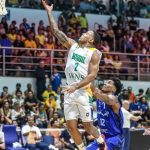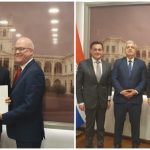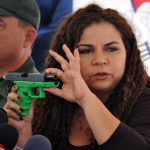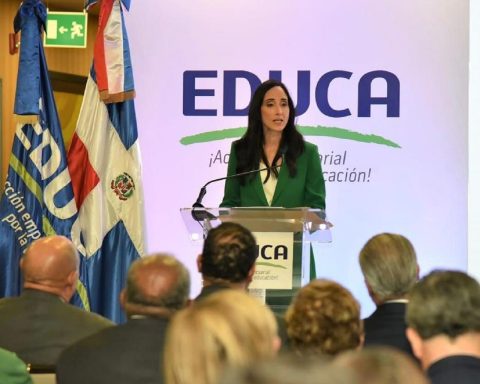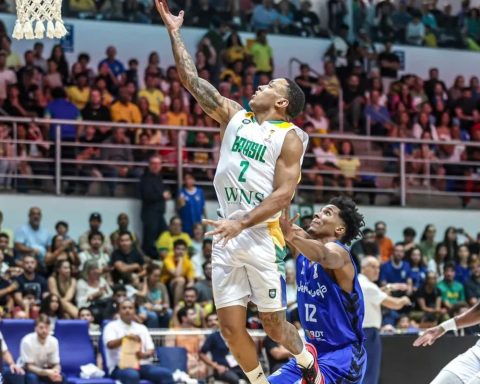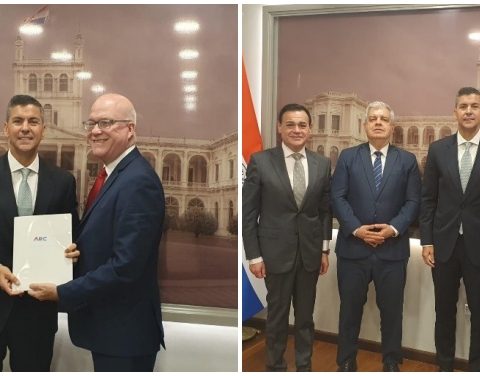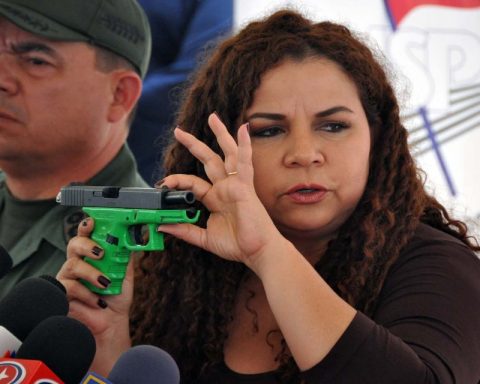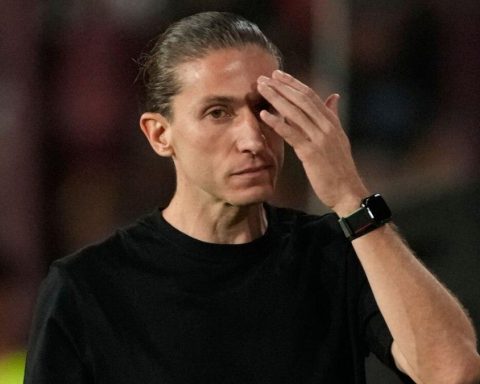In the spring of 2020, the young Nicaraguan journalist Wilfredo Miranda tracked how the government – led by President Daniel Ortega and Vice President Rosario Murillo – hid the number of infections and deaths from Covid-19. On that occasion, he decided not to publish his report in the international media with which he still usually collaborates, such as The country and Univision.
Instead, he opened a website with colleagues and friends Néstor Arce and Carlos Herrera that would become Divergentsone of the leading research journals in Central America.
Just four years later, Divergents has been a finalist for the 2021 Roche Health Prize, organized by the Gabo Foundation, and won the 2022 Ortega y Gasset Prize in the Best Multimedia Coverage category for a series that reviews, from the perspective of transitional justice, the popular protests of April 2018 in Nicaragua and its more than three hundred deaths at the hands of military forces under the orders of the Ortega government.
The founders of Divergentsall under 35 years old, come from Confidentialthe news outlet directed by Carlos Fernando Chamorro. Since then, Miranda was already a target of those in power.
Making the Ortega government’s “extractivist vision” visible
As part of his work as a journalist in his country, Miranda dedicated part of his work to showing how the Ortega government began to repress popular peasant protests between 2013 and 2015, starting with operations to open an interoceanic canal in Nicaragua.
“Despite his apparent leftist ideology, Ortega came to power with an aggressive extractivist vision,” says Miranda. Law 840 legalized the expropriation of peasant lands that occupied a strategic location in the construction of the canal and allowed their purchase at cadastral price and not at market price.
Read also: What has the idea of an Interoceanic Canal left in Nicaragua?
As a result of Law 840, more than three hundred thousand peasants were displaced. Miranda wrote highly publicized reports documenting these displacements or pointing out the environmental damage that would be caused by the dredging necessary for the construction of the canal, especially in Lake Cocibolca, the largest freshwater reservoir in Central America.
As a television reporter on the program This weekalso in ConfidentialMiranda revealed the rape of a 12-year-old disabled girl by several members of Ortega’s security forces. The investigation had such resonance that three of the perpetrators ended up in prison.
But, in her own words, the work that changed her life came in the spring of 2018, after the mass protests. The report, titled “They shot with precision: to kill!”demonstrated extrajudicial executions, the use of high-calibre weapons that could only belong to the army, and sniper fire from privileged positions. The text was one of the main pieces of evidence used by both the United Nations and the Inter-American Commission on Human Rights (IACHR) to claim that the Ortega regime had committed crimes against humanity.
Between May and December 2018, Miranda says he was relentlessly persecuted: his car was broken into, he was threatened with death, and he had to move house five times. By the end of the year, police forces raided and confiscated Confidencial’s offices. The outlet’s journalists demanded explanations at police headquarters and were assaulted and beaten. A video immediately began to circulate in which Miranda, using a fake voice, threatened to kill a police officer. He was accused on television of being a media terrorist.
Read also: Nicaragua: More than 1,000 violations of press freedom in the last five years
At the same time, around the same time, andThe government arrested Miguel Mora and Lucía Pineda, journalists from 100% Noticias.
“You didn’t have to be very smart to figure out who would be next,” says Miranda, who decided to leave the country as a precaution with Carlos Fernando Chamorro and other colleagues from ConfidentialFor eleven months, Miranda did not settle or request asylum anywhere, but moved between friends’ houses in Costa Rica, Mexico and the United States, until he returned to Nicaragua in November 2019.
He founded his magazine and got it up and running with hardly any resources.
“By then, due to the information needs imposed by the pandemic, Confidential had become more of a means of breaking newsand we wanted to investigate, to write longer, more thoughtful texts,” he says. However, a year later, after so much harassment and persecution, the final hour seemed to have arrived and Miranda would have to leave with Divergents into exile.
A flat-bottomed boat, what in Central America they call a panga, deposited Miranda on Manzanillo beach, south of Costa Rica, on the afternoon of June 10, 2021. A car took him to San José, a friend took him in for a few days, lent him clothes from her husband, and that same night, through a phone call, Miranda requested political asylum in the neighboring country. “With the 2018 exodus, between eighty and one hundred thousand Nicaraguans had arrived in Costa Rica, so they already had a very efficient system in place for requesting asylum,” he says.
The previous evening, the national prosecutor’s office had summoned him for an interrogation that lasted four hours. Twenty journalists had marched before him, as well as businessmen and figures from the political opposition. The polls for the presidential elections scheduled for November predicted a crushing defeat for Ortega and Murillo, and opposition presidential candidates were imprisoned on government orders.
“People said that if they put a dog up as a candidate against Ortega, the dog would become president,” Miranda said.
The prosecutor threatened to charge him and sentence him to eight years in prison under the Cybercrime Law, a code ad hoc which, together with the Treason Law or the Life Imprisonment Law, were approved in 2020 by the National Assembly, which is mostly under Ortega’s control, to legalize political persecution. Shortly before Miranda left his interrogation, former presidential candidate Félix Maradiaga had been beaten and arrested by military forces outside the Prosecutor’s Office building.
Read also: Application of laws to stop Ortega’s opponents defined 2021 in Nicaragua
Miranda did not return home. He took refuge in the Hyatt Hotel, which was immediately surrounded by patrols. Rumours began to spread that the military had raided his home. This was not true, but at around eight o’clock in the evening he received a call from his lawyer, who advised him that the best thing he could do was to leave the country because he had already done so.
Several of his friends mobilized, and in the middle of a heavy downpour, which served as protection, a minibus that simulated service work picked Miranda up from the back of the hotel and took him to a beach in the south of the country. Limited by the rain, no checkpoint stopped the minibus. They dressed him as a fisherman, wrapped his laptop in black nylon, bypassed the naval force surveillance and a boat took him to the Costa Rican maritime line, where another boat picked him up.
“I was carrying around a feeling of shit, of defeat,” says Miranda, who was 30 at the time.
Today, already with a staff of about twenty people, Divergents has established its command post in San José, which has not prevented them from continuing to report and denounce the Nicaraguan political and social reality. That is precisely one of the reasons why on February 15, 2023, Wilfredo Miranda’s name was on the list of 94 opponents, along with figures such as writers Sergio Ramírez and Gioconda Belli, who were stripped of their nationality by Daniel Ortega, in another twist of the repressive screw by a frankly decrepit regime.
At the time of the announcement, Miranda was interviewing several priests from his country who had been politically imprisoned in Washington. His property was confiscated, his bank accounts frozen and he was declared a fugitive from justice and a traitor to his country.
“I felt angry, very angry,” he says. “…And I sat down to write an article, which is the only thing I know how to do.”
The measure has made him, if possible, even more Nicaraguan, committed and tied to the fascinating possibility of returning home.
“Far from breaking our national pride, the dictators have revitalized our commitment in exile, fueled by the hope that, sooner or later, we will once again eat quesillo, and other longed-for dishes, in our Nicaragua,” reads his article in response to the Ortega government.
Connect with the Voice of America! Subscribe to our channels Youtube, WhatsApp and to newsletter. Turn on notifications and follow us on Facebook, X and Instagram.
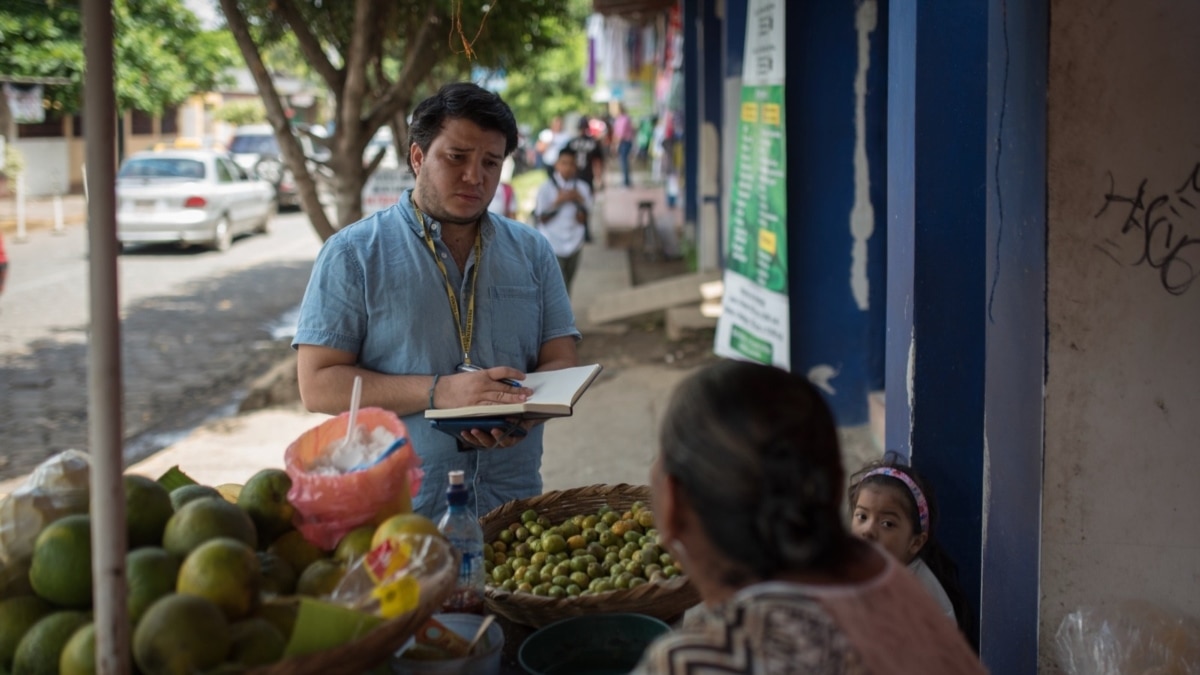
![From Confidencial to Divergentes: the path of the exiled Nicaraguan journalist Wilfredo Miranda Journalist Wilfredo Miranda appears in this photograph after being accused of violating the Cybercrime Law in Nicaragua. [Archivo]](https://gdb.voanews.com/01000000-0a00-0242-3395-08dc952f41f3_w250_r0_s.jpeg)
![From Confidencial to Divergentes: the path of the exiled Nicaraguan journalist Wilfredo Miranda Journalist Wilfredo Miranda received the Ibero-American Journalism Award "King of Spain"in January 2019. [Cortesía]](https://gdb.voanews.com/01000000-0aff-0242-e32f-08dc952f044e_w250_r0_s.jpeg)







